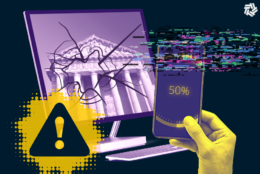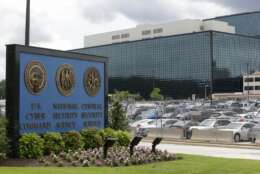Automation
-
The federal government has been using or developing AI for several years. Section 10 of the EO now provides uniform direction for federal government agency efforts to develop and use AI in their operations.
January 15, 2024 -
HSGAC Chairman Gary Peters says legislation is ‘forthcoming’ in the areas of customer service and AI.
January 11, 2024 -
By next year, 75% of government agencies will have launched at least three enterprise-wide initiatives for AI-assisted automation, according to Deloitte. And 60% of agency investments in AI and data analytics will be designed to have a direct impact on real-time operational decisions and outcomes, Deloitte says.
January 08, 2024 -
AI-powered automation can also aid federal agencies in digital transformation by facilitating seamless integration across various systems and platforms. Software bots bridge the gap between legacy and modern technology, enhancing collaboration between agencies and promoting a comprehensive approach to service delivery.
December 29, 2023 -
The reauthorization of NQI is the first, most important step to putting the U.S. back in the lead on quantum. It will bolster U.S. innovation and send the right signals to capital markets and adversaries alike.
December 19, 2023 -
Herb Kelsey, the Project Fort Zero Team Leader at Dell Technologies, said agencies have the opportunity to focus on the policy and process side and not the technology piece of the zero trust architecture.
December 04, 2023 -
Starting with a journey map based on an HCD methodology is crucial. This approach can enable the data to be used for insights beyond individual medical treatment, including how a researcher may use this data to inform how it’s stored or what groups can access it.
December 04, 2023 -
Quantum technologies have the potential to revolutionize various fields, from communication and cryptography to material science, financial modeling, drug development, logistics, navigation and more. However, both the U.S. and China recognize the significance of quantum in enabling new military capabilities such as advanced sensing and imaging technologies, quantum radar, and quantum cyber-attacks.
November 29, 2023 -
The head of the IRS' cybersecurity operations says the Treasury agency is making progress on logging, multifactor authentication, and other aspects of "zero trust" security to help protect taxpayer data.
November 23, 2023 -
The Department of Veterans Affairs says its new Electronic Health Record (EHR) hasn't seen a total outage in more than six months.
November 15, 2023 -
Along with employee onboarding, effective training and development programs are needed to help employees improve their skills and keep a skilled staff. For example, AI-powered automation can make it easier to sign up for courses, keep track of when they are finished and make progress updates. These features make it easy for government HR departments to make the most of their training resources and keep track of employee growth.
October 26, 2023 -
The State Department tool cost about $400,000 to develop and is at least 97% as accurate as humans, according to an agency leader.
October 09, 2023 -
A cross-agency team focused on how the federal government can improve public-facing services online is looking at text messages as the new frontier for better customer experience.
October 03, 2023 -
By the end of fiscal 2024, all federal employees in “non-sensitive public trust positions” will be subject to more regular background checks.
October 03, 2023 -
The new center will focus on both setting security standards and ensuring U.S. advances in AI aren't stolen by foreign adversaries.
September 28, 2023















